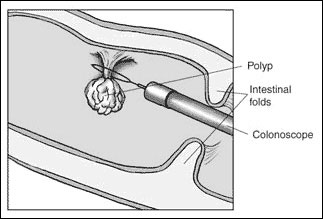What is Colorectal Cancer?
According to Cancer.org, colorectal cancer is a cancer that starts in the colon or the rectum. The colon and rectum are at the end of your digestive tract, where stool is stored before being expelled from the body. The development of colorectal cancer is typically a slow progress, usually beginning as a benign polyp on the inner lining of the colon or rectum. For this reason, all polyps found in your digestive tract by Dr. Tabib are removed and examined.


